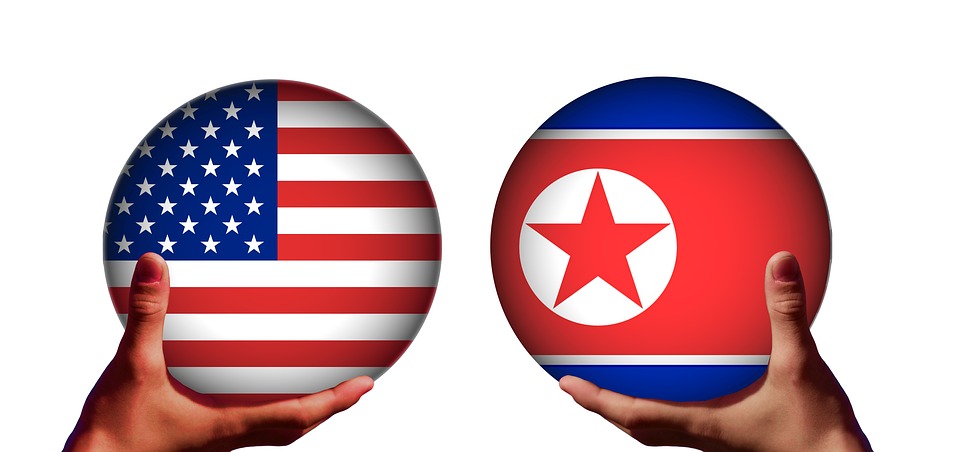Canada News
Canada, U.S. lead call for enforcement of sanctions against North Korea

The demands followed a day of closed-door talks in which foreign ministers and senior diplomats from 20 countries strategized ways to end North Korea’s nuclear ambitions and force it back to the negotiating table. (Pixabay photo)
VANCOUVER— Canada and the U.S. led calls Tuesday for the global community to step up its enforcement of sanctions against North Korea, even as they urged Pyongyang to give up its nuclear weapons and embrace a more peaceful future.
The demands followed a day of closed-door talks in which foreign ministers and senior diplomats from 20 countries strategized ways to end North Korea’s nuclear ambitions and force it back to the negotiating table.
Foreign Affairs Minister Chrystia Freeland and U.S. Secretary of State Rex Tillerson, the meeting’s co-hosts, were united during a closing news conference in emphasizing that a nuclear-armed North Korea would never be accepted.
Diplomacy is the preferred option, they said, as Freeland promised that “a North Korea that commits to the complete, verifiable and irreversible dismantling of its nuclear program will have a secure place in the international community.”
But both also emphasized the need for continued pressure on Pyongyang through the rigorous enforcement of UN sanctions, especially by North Korea’s two most important allies and neighbours: China and Russia.
“We agree that the need for UN member states, especially China and Russia, to fully implement agreed-upon sanctions is essential to their success,” Tillerson said.
The U.S. last year sanctioned several Chinese companies and individuals for their alleged involvement in helping North Korea skirt sanctions, while both Russia and China have been accused of exporting oil to Pyongyang.
The two countries, neither of which were invited to the Vancouver meeting, have previously denied the charges and criticized Tuesday’s gathering as potentially harmful to peace prospects on the Korean peninsula.
To help close the gaps in enforcement, Freeland said the Canadian government had earmarked $3.2 million to help other countries with training and other technical assistance, and that it would raise the issue during the G7 summit.
One of the questions heading into the meeting was whether participants would endorse a U.S. call for naval interdiction of North Korean shipping, following concerns about smuggling.
While participating nations agreed to take a tougher line, Tillerson said, the results were not expected to result in military action but instead see illicit North Korean goods identified and seized when ships stop in ports of call.
Canada and the U.S. called Tuesday’s meeting in response to Pyongyang’s recent nuclear and ballistic-missile tests, which have rattled the international community and thrust North Korea to the top of the list in terms of global crises.
Asked how serious the threat of war with North Korea actually is, Tillerson replied: “We all need to be very sober and clear-eyed about the current situation.”
The majority of the 20 countries were invited to the meeting because of their support for South Korea during the Korean War more than 50 years ago.
Participants were largely united in their belief that efforts to isolate North Korea and stop its sources of income were starting to bite, which they argued is what prompted Pyongyang to reach out to Seoul earlier this month.
But despite that thawing of relations and resumption of talks between North and South Korea, there was unanimity in the need for real progress on denuclearization before any easing of pressure.
“Our message is clear,” Freeland said at the start of the meeting, speaking directly to the North Korean regime.
“The pursuit of nuclearization will bring you neither security nor prosperity. Investing in nuclear weapons will lead only to more sanctions and to perpetual instability on the peninsula.”
Freeland and others emphasized that they were not seeking regime change, and suggested that by abandoning its nuclear aspirations, Pyongyang would help bring a safer, more prosperous future to its people.
Whether that message resonates with Kim Jong Un’s regime will have to be seen, but analysts have long asserted that it sees nuclear weapons as the ultimate guarantor of its survival in any conflict with the U.S.
Freeland, meanwhile, dismissed suggestions that U.S. President Donald Trump has made the current standoff with North Korea worse through his public comments.
“The source of the threat to the international community, the source of the illegal actions, the source of the nuclearization is North Korea,” she said during the closing news conference.
“It is North Korea’s actions which are making us all less safe, and to which we all need to respond as allies and as an international community.”





















